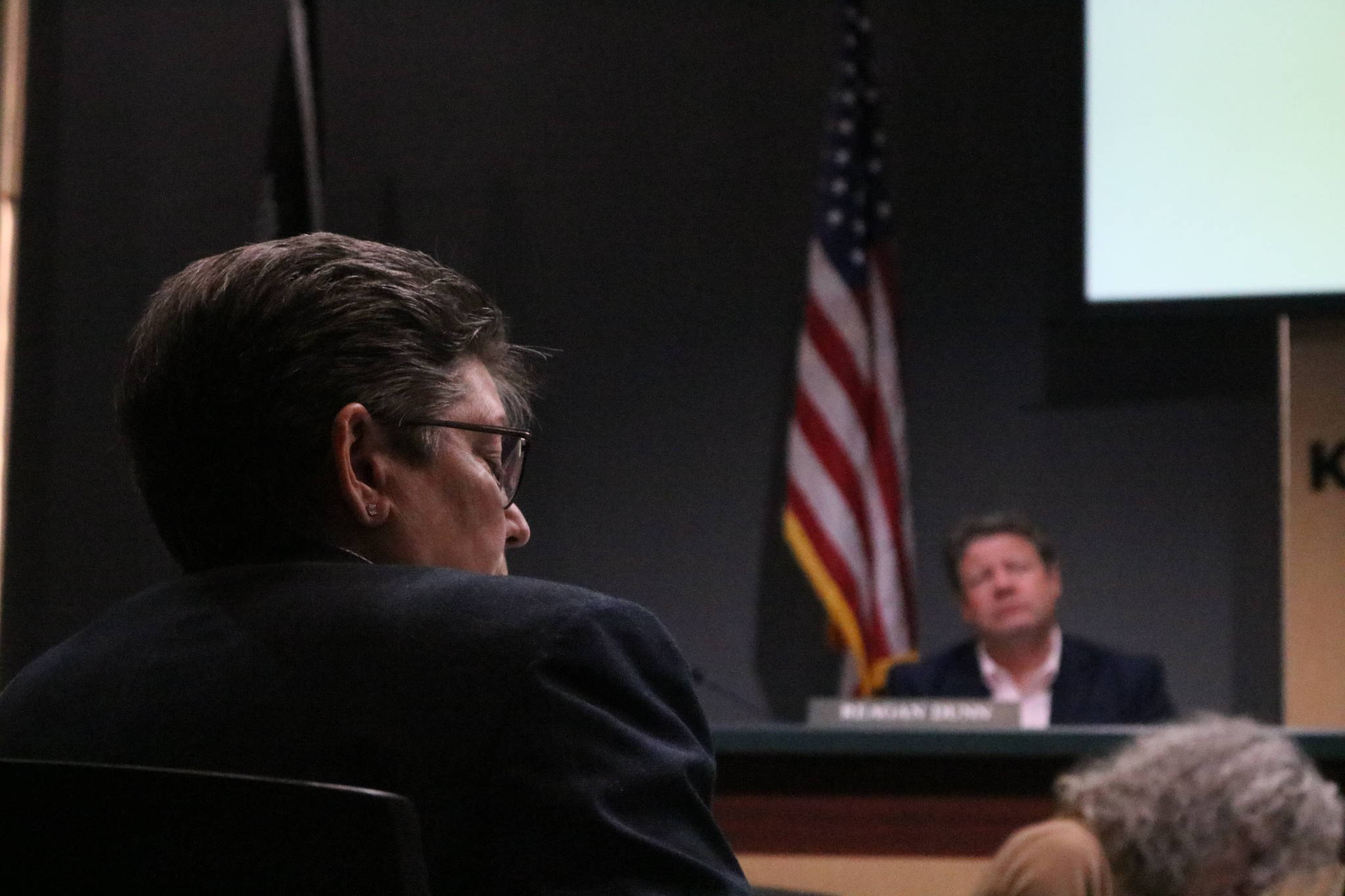King County Council members aren’t satisfied with the King County Sheriff’s Office’s response to a report outlining what it calls system failures that led to the shooting death of Mi’Chance Dunlap-Gittens.
Sheriff Mitzi Johanknecht presented a response to a report from the Office of Law Enforcement Oversight (OLEO) at a Law and Justice Committee meeting Feb. 25. The report reviewed the 2017 shooting of Dunlap-Gittens by deputies. Dunlap-Gittens was shot and killed as part of a botched undercover sting in which Dunlap-Gittens was not the suspect.
The OLEO report made more than 30 recommendations to the Sheriff’s Office about how to improve internal investigations into uses of deadly force and deputy conduct. However, the report said all were ignored, without getting an up or down vote by the Sheriff’s Office Review Board. Johanknecht disagreed.
“Reforms did not die on the vine,” Johanknecht said.
The sheriff said her office had already implemented one of the suggestions. Johanknecht also said she wasn’t against reforms, stating she supported I-940, which required law enforcement in the state to receive training in de-escalation, mental health and first aid.
But the report questioned why deputies are only compelled to submit a written report two full days following a use of deadly force, and not sooner. The Sheriff’s Office argued that 48 hours allowed deputies to more accurately remember what happened and that the waiting period was part of the deputies’ bargained labor contract. This report is used in the Sheriff’s Office’s internal investigation. In the event of a death, a separate criminal investigation is also launched by an outside agency.
Committee chair and county council member Girmay Zahilay asked what assurances the Sheriff’s Office could give that the 48 hours wasn’t being used to consolidate deputies’ stories. Johanknecht said statements often contain narratives that aren’t true, but that the internal investigations catch these.
Zahilay said he was drafting legislation for the county council requiring the Sheriff’s Office to give detailed explanations as to why the remaining recommendations were not implemented.
“We will be part of the solution,” Zahilay said.
Further suggestions were submitted by OLEO at the meeting, including changing criteria for when officers can use deadly force. The current policy lets officers use deadly force if they believe a suspect poses a threat of serious harm to them or others. The policy does not define what would constitute a reasonable belief that a suspect could cause harm. Deputies in the Dunlap-Gittens shooting argued that they thought the 17-year-old could harm them or others while he was running away.
The answers similarly didn’t satisfy Dunlap-Gittens’ father, Frank Gittens, who addressed the committee. Gittens said the sheriff’s response sounded like justifications for wrongdoings.
“I never want this type of thing to happen ever again,” he said.
The OLEO report suggested the standard for using force be an “imminent or immediate threat of serious physical harm,” instead. It further recommended that internal investigations assess whether a use of force was “reasonable, necessary and proportional,” as well as if the officers tried to de-escalate the situation first.
This suggestion along with three other recommendations were supported by a broad coalition of community organizations, which signed a letter to the council. It says while the King County Sheriff’s Office announced changes to its use of force policies last December, it doesn’t go far enough.
“Instead of establishing itself as a leader in use of force policies, KCSO has fallen behind neighboring departments, such as the Seattle Police Department,” the report reads.
The organizations, including the ACLU of Washington, the Asian Pacific Islander Coalition, OneAmerica and Community Passageways, among others, asked Johanknecht to implement four policy changes. These include support for OLEO’s use of force revision; placing an emphasis on de-escalation; requiring that deputies who use deadly force be interviewed and recorded before the end of that shift; and allowing for the Critical Incident Review Board to do a full review.
The labor contract for Sheriff’s Office employees — who are represented by the King County Police Officers Guild — is often given as a reason for not implementing policing reforms. Labor law trumps county policy, and the guild has successfully prevented other oversight measures. This includes preventing OLEO from receiving voter-approved subpoena powers since 2006.
A perception that the Sheriff’s Office is lagging behind in accountability was also noted in the county’s charter review process. Charter review commissioners submitted a report to the county council last week that recommended OLEO’s subpoena power be enshrined in the charter, even if it would still need to be bargained.
It additionally recommended that the sheriff’s position be moved to an appointed one, rather than an elected seat. The report stated that its recommendation wasn’t directed at the current sheriff.



